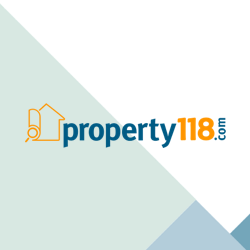

by Steve Sims
14:05 PM, 22nd February 2011, About 14 years ago 2
Text Size
Guest Blog provided by Steve Sims, author of “Understanding And Paying Less Property Tax For Dummies”. Steve and his wife also have a boutique accountancy business which specialisis in providing taxation advice and accountancy services for property investors.
Working out tax claims for using your car in a property business is enough to drive any landlord mad.
On the one hand, HM Revenue and Customs accepts landlords to set the money off against rents, but on the other the rules and regulations make claiming travel against tax hard work.
To clarify claiming travel expenses for buy to let landlords, here is a quick guide to the rules.
First, let’s look at common claims that just provoke hassle with the taxman:
Claims if you have a letting agent
You can still claim some travel costs. But not a lot if you have a letting agent managing your properties. The taxman’s view is if you are paying a manger to look after your buy to lets, why are you claiming to do the same work?
If you are visiting the properties to complete work over and above the letting agents brief, then a claim is possible.
Aborted property costs
Forget claiming for viewing properties that do not go through – the cost is claimed against rental income. No rent generating property means no income, therefore nothing to claim against.
Now, let’s get down to using your car for your property business and how to claim some of the costs to pay less tax:
Apportioning your costs
Apportionment is sharing out the costs of running the car fairly between private and business use.
The easiest way to do this is to take the annual mileage for a tax year – between April 6 one year and April 5 the following year.
Here’s an example:
You have a car and drive 24,000 miles in a year, claiming 6,000 are for your property business.
Use this formula to work out your apportionment:
Property business mileage DIVIDED BY Actual vehicle mileage TIMES 100
In our example 6,000 divided by 24,000 x 100 = 25%
Now take the costs of running the car and add 25% of them as a property business expense in the same way as you include repairs, mortgage interest or professional fees.
Defining business travel costs
The key term is ‘wholly and exclusively’. A business trip must be solely for the property business – stopping off at the DIY on the way to work does not qualify.
Going to the DIY and then to a buy to let does.
If you run your business from home, you can charge from home to a property or an other destination for business, but if you have an office away from home, you cannot charge commuting to and from the office to home.
All normal costs of running a car can be claimed, like fuel, oil, insurance, servicing, repairs, cleaning, excise licence, AA membership, and any interest on finance for the car.
You can also claim expenses incurred on a business trip like parking and tolls – but not parking fines.
Capital Allowances
Capital allowances are tax reducers that are not claimed in the accounts but as a deduction in your tax calculation.
Basically, they are a relief for investing money in a business. Capital allowance rules for cars depend on the vehicle’s CO2 emissions and cost.
Keep a record
List your business trips in a mileage log that records the date, distance in miles, start place and destination plus reason for the trip. This log details the business mileage figure you base apportionment of car running costs against.
So, if this log says you travelled 3,000 miles for business in a tax year, it’s the 3,000 miles you use for apportionment, not an estimated figure.
If you need a property business check or help keeping financial records and preparing tax returns, a link to Steve’s web-site can be found HERE.
William Wylie
Become a Member
If you login or become a member you can view this members profile, comments, posts and send them messages!
Sign Up8:45 AM, 9th October 2014, About 10 years ago
Great article on a potential minefield Steve-thank you! You mention many of the costs that can be offset eg fuel excise etc, but what if the vehicle is leased, can the lease payments be offset also? If so this seems the most tax efficient route for a landlord?
Mark Alexander - Founder of Property118
Become a Member
If you login or become a member you can view this members profile, comments, posts and send them messages!
Sign Up11:32 AM, 9th October 2014, About 10 years ago
Reply to the comment left by "William Wylie" at "09/10/2014 - 08:45":
Hi William
Since writing this article back in 2011 Steve has retired.
.